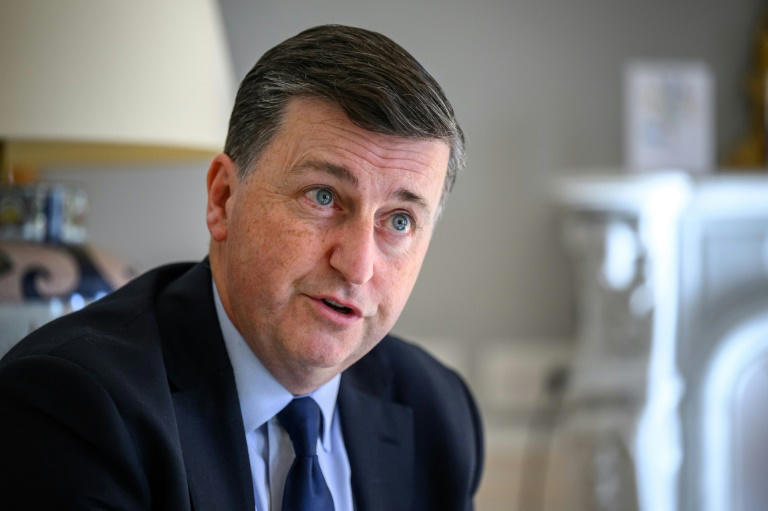FALCON POWERS – The United Kingdom is striving to reset its trade relationship with the European Union, viewing international exchange as a key driver for reviving economic growth, according to British Minister for Trade Policy Douglas Alexander in an interview with AFP.
Alexander acknowledged that the UK’s vote in 2016 to leave the EU caused “significant disruption” to its trade policy, necessitating a recalibration of its international trade outlook.
Alexander visited Geneva on Monday to meet with the Director-General of the World Trade Organization (WTO) as part of a plan to develop a revised and long-term trade policy for the UK, set to be published in Spring 2025.
The British minister stated, “That this is my first European visit is a sign of the new government’s strong commitment to both the WTO and the multilateral trading system.”
Prime Minister Keir Starmer took office after the Labour Party, under his leadership, won a landslide victory in the general elections held in July, ending the Conservative Party’s 14-year dominance.
Alexander asserted that the UK would be “the most politically stable democracy within the G7” in the coming years. He added, “While this does not guarantee economic stability and progress, it certainly helps.”
The British minister expressed the new government’s eagerness to “reset our relationships with our friends and partners in the EU, as well as continue pursuing free trade agreements and new opportunities with markets around the world.”
New Strategy
Alexander emphasized that enhancing trade plays a “central role” in the “defining mission” of Starmer’s government, which is to achieve growth in the UK economy.
He explained, “Trade is among the set of tools we look to for achieving economic stability and financial security.”
The UK economy recorded a growth rate of 0.5 percent in the second quarter of 2024, after experiencing a shallow and brief recession in the latter half of the previous year.
Alexander noted that “the numbers remain quite difficult regarding the immediate trade impacts of the post-Brexit phase, but the reality is that 47 percent of Britain’s trade still remains with the EU. Therefore, there is urgency in recalibrating our relationship” in this area.
He added, “One reason for my visit to Geneva was to listen and learn, and to frame in my mind how to think about the WTO’s role in my emerging thoughts on trade strategy.”
The EU is one of the 166 members of the WTO. After leaving the continental bloc in 2020, the UK has been conducting its negotiations independently within the organization headquartered in the Swiss city.
Alexander stated, “We have an ambitious agenda to open up opportunities beyond the EU, while we seek to reset our relationship with the EU,” pointing out that his country’s economy is 81 percent dependent on services, with “immense national interest” in developing digital trade.
The British minister emphasized that the WTO is “an indispensable institution for international cooperation,” affirming his support for the renewal of Director-General Ngozi Okonjo-Iweala’s mandate for another four years after her current term ends in August.
Alexander affirmed that he is a “great admirer” of her leadership of the WTO, considering that the former Nigerian finance minister has provided “authority, credibility, and capability” to an organization often viewed as inflexible.
He stressed that the multipolar trading system would be “the foundation of much of what we aspire to in our trade strategy in the upcoming stages.”
Earlier this month, the WTO had downgraded its forecast for global merchandise trade growth this year to three percent, down from 3.3 percent.


